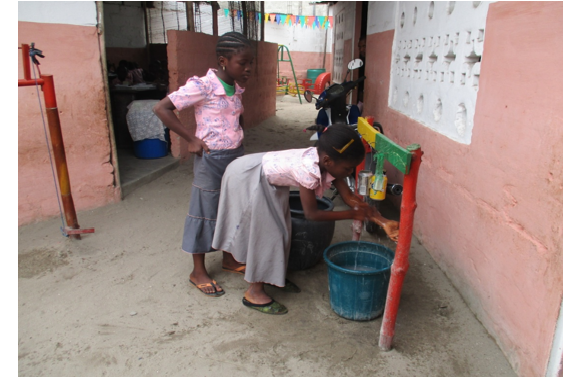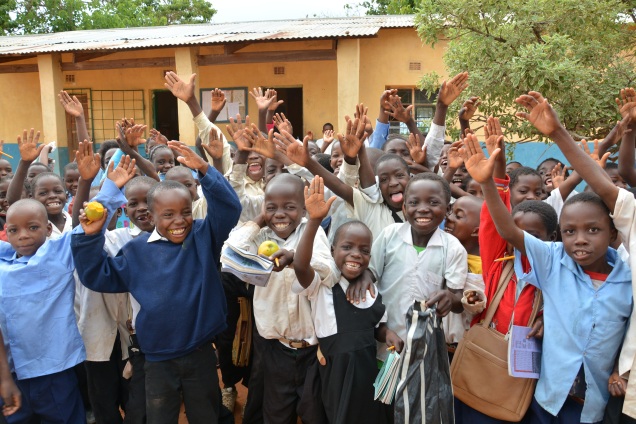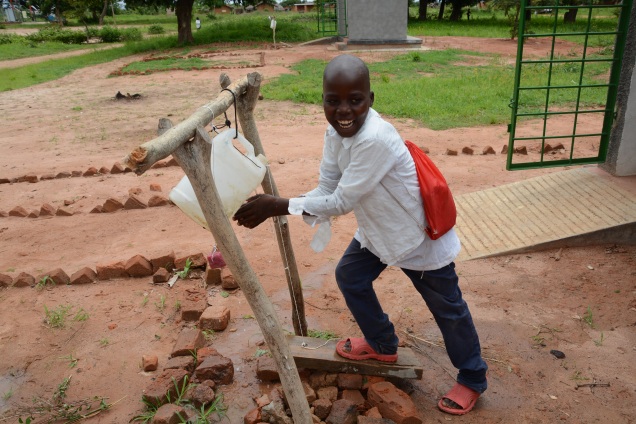Bringing WASH to classrooms, turning a cycle of poor health, interrupted learning and gender inequity into a cycle of opportunity.
Poor water, sanitation, and hygiene (WASH) lead to poor health. Poor health keeps kids out of school, and when kids miss class, they can’t learn. FHI 360 and CARE, in partnership with USAID and the Ministry of Education in Zambia, are bringing WASH to classrooms, turning a cycle of poor health, interrupted learning and gender inequity into a cycle of opportunity.

BUILDING BLOCKS FOR LEARNING
Clean water, adequate sanitation and proper hygiene require appropriate facilities and an awareness of good practices. SPLASH is a five-year project started in 2011 funded by USAID Zambia to reach more than 240,300 primary school pupils in three districts of the Eastern Province (Chipata, Lundazi, Mambwe and Chadiza). SPLASH aims to improve pupils’ health, learning and performance by increasing their access to safe water and adequate sanitation and improving their hygiene and health practices at school and at home
Through the SPLASH partnership under WASHplus, CARE International supports the construction of boreholes and sanitation facilities, while FHI 360 supports teacher training and curriculum development. Local ministries, nongovernmental organizations and communities take it from there.
CONSTRUCTING FACILITIES
Theresa J.V. Ngoma, District Education Board Secretary, Mambwe
INVOLVING COMMUNITIES
Patricia Mitti Mazonga, Head Teacher, Mambwe
DEVELOPING CURRICULA
Margaret Phiri Mapata, District Resource Center Coordinator, Chipata
PLAYFUL PARTICIPATION FOR LIFELONG HABITS
A solid infrastructure provides a foundation for lifelong healthy habits to take root. Schools form WASH clubs for students and WASH committees for parents and community members.
Manda Esaya E., Teacher, School WASH Coordinator, Lundazi
BEING A MEMBER OF WASH CLUB
WASH clubs and committees engage students and community members through skits, songs, dances, poems and prayer.
Jennifer Jere, WASH Club member, Mambwe
MANAGING MENSTRUAL HYGIENE – EQUITABLE EXPERIENCES FOR GIRLS
Good menstrual hygiene management is critical to keeping girls in school all month long. Equipped with new washrooms for girls, the schools have also taken steps to prevent teasing and ensure a comfortable environment for menstruating students.
Solomon Mwanza, Head Teacher, Lundazi
FROM THE CLASSROOM TO THE COMMUNITY
Small doable actions are simple steps that people can take to improve WASH.
Learn more.













